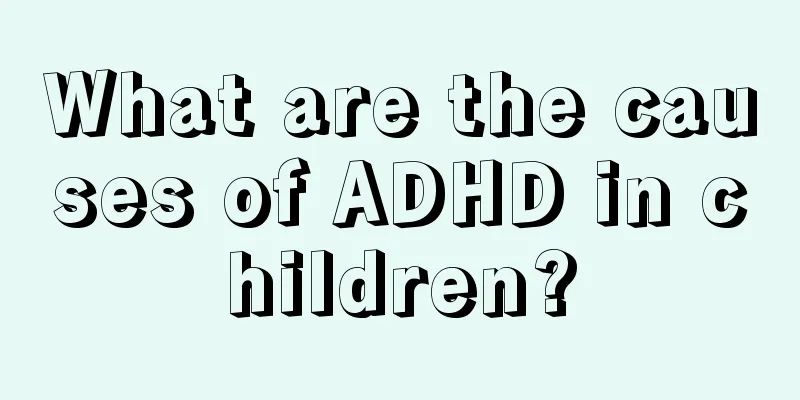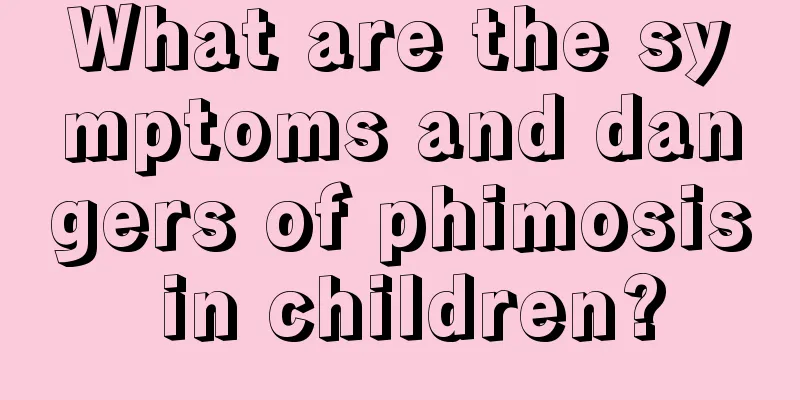What are the causes of ADHD in children?

|
It is understandable that most children are active and curious about the outside world. Children who are very active may have some symptoms of ADHD. When parents are tired of dealing with their children's restlessness, they will not be too worried if they know the reasons behind it. What are the causes of ADHD in children? Common reasons include disharmonious family relationships, congenital heredity, and some bad habits during pregnancy. The following is a detailed explanation of these causes. Genetic factors. Family studies, twin studies, and foster child studies support that genetic factors are an important risk factor for ADHD, with an average heritability of approximately 76%. Environmental factors. Includes prenatal, perinatal and postnatal factors. Risk factors associated with pregnancy and childbirth include smoking and drinking by mothers of ADHD patients, premature birth, postpartum hypoxic-ischemic encephalopathy, and thyroid dysfunction. Childhood illnesses that have been linked to the development of ADHD include viral infections, meningitis, encephalitis, head injuries, epilepsy, toxins, and drugs. More controversial factors include malnutrition, diet-related allergies, excessive intake of beverages or foods containing food additives, iron deficiency in children, elevated blood lead levels, and decreased blood zinc levels, which are associated with the development of ADHD, but the evidence is currently insufficient. Family factors. Disharmony between parents, broken family, improper parenting style, bad personality of parents, depression of mother, impulsive, antisocial behavior or substance addiction of father, financial difficulties of family, crowded housing, separation from parents, abuse in childhood, inappropriate education methods in school, etc. What are the causes of ADHD in children? It is not difficult to understand if you take the trouble to do so. Parents should play a leading role in this regard, guide their children's behavioral norms, and ensure family harmony. Expectant mothers should also keep their minds stable and calm during pregnancy, develop good living and eating habits, and be responsible for their children's growth and future. |
<<: What are the effects of ADHD on children?
>>: What are the clinical manifestations of ADHD in children?
Recommend
What to do if a child has a high fever of 39 degrees
Children's health is what mothers are most co...
Baby has diarrhea after taking jaundice medicine
Nowadays, many newborns have severe jaundice, so ...
What should I do if my child has cervical vertebrae problems during the summer vacation?
The annual summer vacation has arrived and the ch...
Why do children sweat at night?
Compared with adults, children may have more prob...
What's going on when the baby shakes his head and scratches his ears?
I believe that careful mothers will often find th...
Consequences of protein deficiency in children
Protein is an important component of all cells an...
The benefits of eating cauliflower for children
Cauliflower is a favorite food of many people. Th...
What to do if your baby has a cold and stomachache
We will add or remove some clothes as the seasons...
How to clean the nose of a full-month baby
A one-month-old baby is only about thirty days ol...
What can children with poor physical fitness eat to enhance their physical fitness?
It is not easy for every baby to grow up. Many pr...
How to make mashed potatoes for nine-month-old babies
Nine-month-old babies are already able to eat com...
3 month old baby spitting up milk
A three-month-old baby has not yet fully develope...
What to do if a child has a fever of 375
If your child's fever has reached 37.5 degree...
What should I do if my child has intellectual disability?
If a child has intellectual retardation, it is im...
Why does the baby have eye eczema?
Babies' skin is inherently fragile, so they a...









